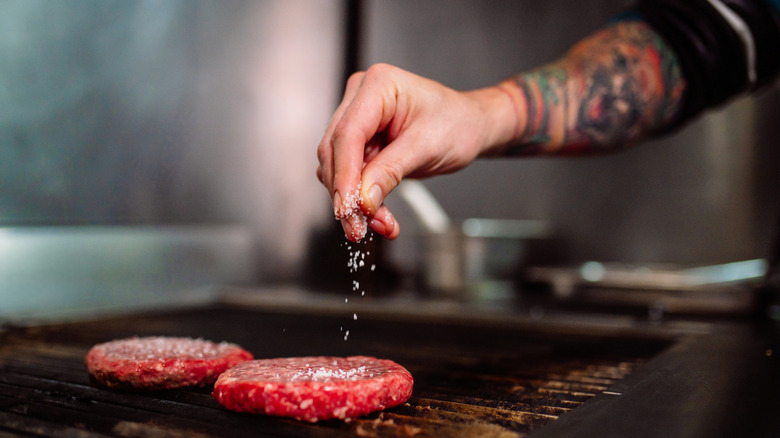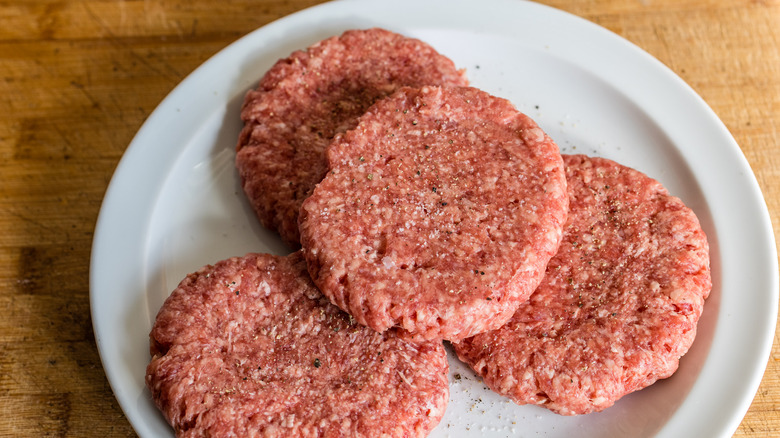The Perfect Time To Season Burgers Depends On The Texture You Want
Salt isn't just for seasoning. Sodium chloride has unique properties: It can change the structure of proteins and pull water out of fruits and vegetables. In turn, this has implications as to when you should season your food. For example, some cooks like to coat meat in a salt rub before cooking it, otherwise known as a dry brine.
But ground meat is a different beast, and salting burgers won't have the same effect as salting steak. The Takeout asked Rocco Carulli, owner and executive chef at R HOUSE in Miami, about salting burger patties. Should you leave the salt to the last minute, or should you mix it in with the rest of the seasonings?
"This is a big one," Carulli says. "If you salt the ground beef before forming patties, the salt pulls out moisture and starts dissolving proteins — which makes the burger denser, almost like sausage." It's a small detail, but it can have notable effects on the texture of your burger.
When should you salt your burger meat?
A denser texture has one practical advantage: If you salt your meat beforehand, it'll help keep the patties from crumbling on the grill. But holding off has its advantages, too. "If you want that loose, tender, juicy burger bite, you should form your patties first and then salt the outside right before they hit the grill," Carulli says.
Carulli is a fan of this texture himself. "At R House, we salt the surface only, so the beef stays soft in the center with that perfect crust outside," he explains. If you prefer a denser texture, you'll still need to season the meat with caution. Salt and heat affect meat in similar ways, so a burger that's been salted in advance could end up with the chewy texture of overcooked meat. Meanwhile, if you're having trouble getting your patties to stay together, adding a binder like egg to your burger meat might be a better bet.

